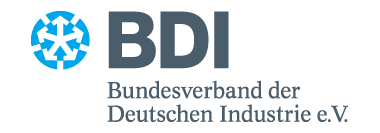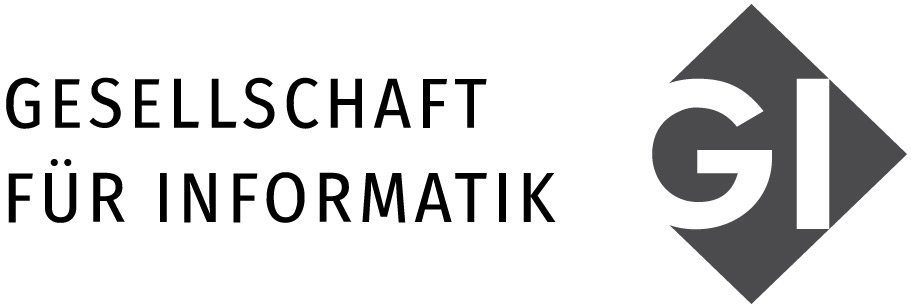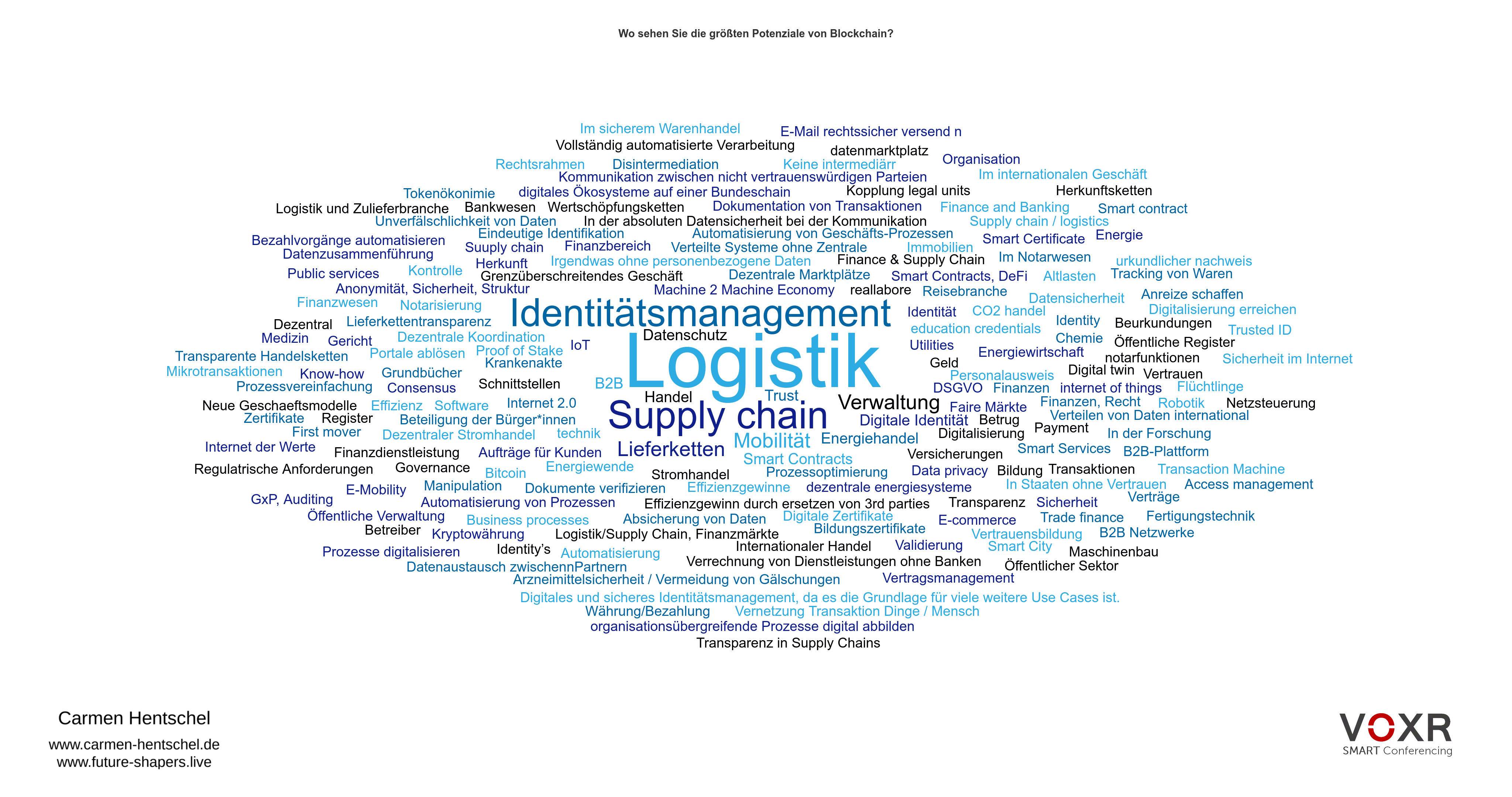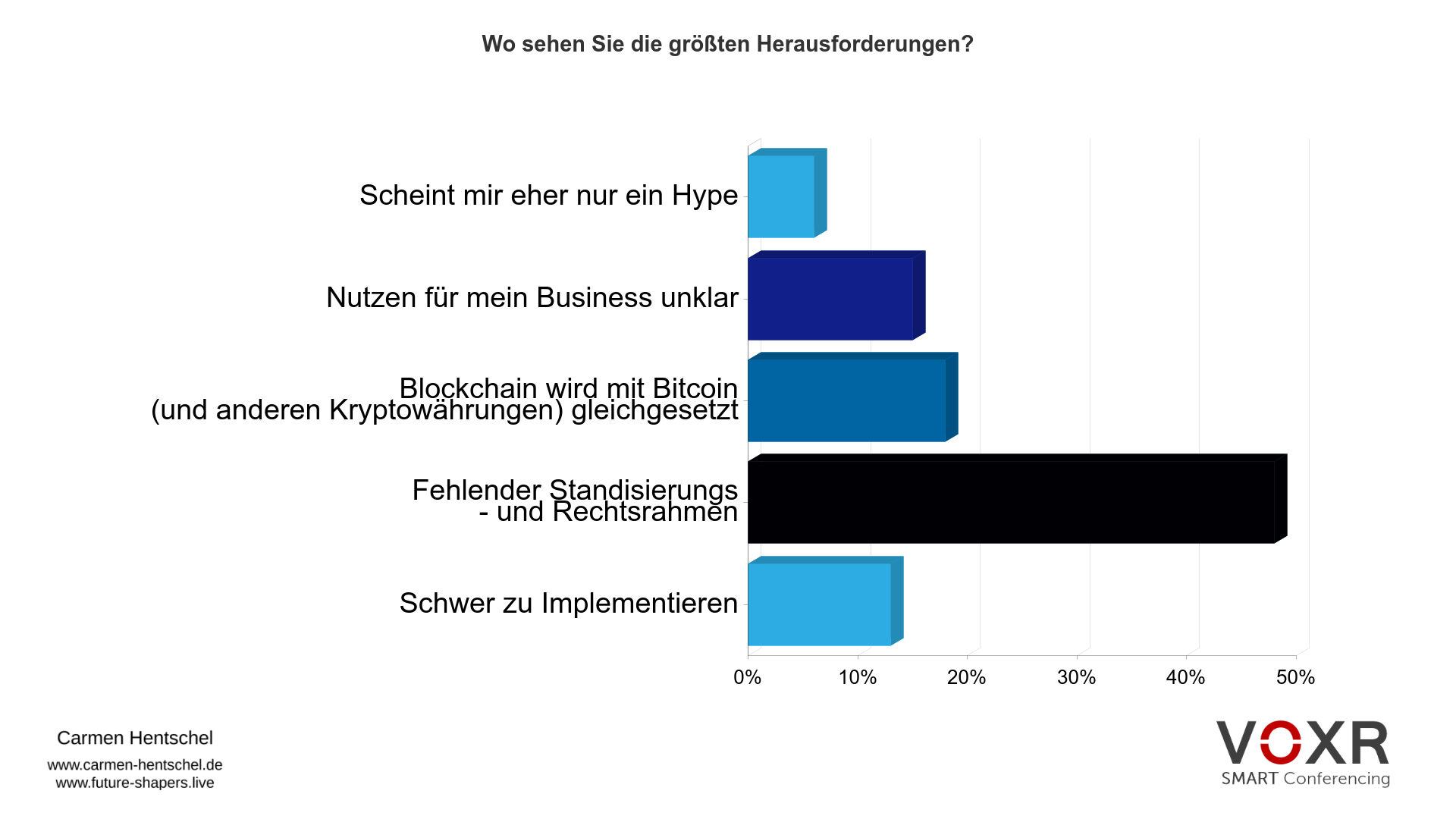Most of the 200 or so visitors have probably already had the certainty that the Blockchain is about to become a key technology in the digital economy. However, at the latest after the German government published its Blockchain strategy in September 2019, the voices surrounding the still young trend technology have also become louder in general. It is remarkable that the crypto currencies are no longer the focus of the discussions. A short survey at the beginning of the conference about the best areas of application for block chains had a clear result: logistics. Here, many experts and users can imagine to draw added value from distributed ledgers and smart contracts. The counter-question – namely, where the biggest obstacles lie in the use of blockchain technology – gave an equally clear picture: The industry wants binding technical standards as well as a legal framework that secures the economic use of blockchains and the associated business models even before the legislator.
Chancellery Minister Helge Braun promised to be on the right track in both areas: "The blockchain strategy he initiated includes regulatory options on the one hand, concrete funding projects on the other and, last but not least, instruments for dialogue between industry, politics and research. He describes the motivation for launching such a strategy as being that, first of all, political development wants to keep pace with technology. He also sees a need for coordination – especially between the different departments of the Federal Government. BDI President Dieter Kempf also sees the federal government's blockchain strategy as the right move at the right time. He emphasised that blockchains are not only a topic for the IT sector, but will also be particularly useful in the traditional industries – where Germany is traditionally strong. For this reason, he said, companies must definitely get involved with the new technology. This is especially true for those companies whose offerings are part of value chains and have a correspondingly high degree of networking. Here blockchains are a particularly good instrument of cooperation. Fraunhofer Executive Board member Andreas Meuer emphasized the need for close cooperation between research, industry and politics. He noted that the areas of application do not have to be searched for a long time, but that they are virtually eye-catching in terms of corporate accounting, for example. In combination with another trend technology – 5G – it is to be expected that the Industrial Internet of Things will experience an enormous increase in importance. He also advocated testing blockchains in so-called "real laboratories", i.e. test scenarios that make it possible to experience technologies in a real application context beyond the existing regulations and can also be tested, for example, with regard to scaling effects or the application of data sovereignty concepts.
In a further item on the day's agenda, the participants were able to refresh their knowledge of how blockchain technology works – in the form of a living blockchain. Each participant became part of a blockchain network and was thus able to experience which data is generated, checked and anchored in the blockchain at which point. In "mythbusting", Fraunhofer researchers clarified the most common errors, myths and prejudices associated with blockchains. A more detailed overview of the blockchain myths can be found in the specially created playlist on our YouTube channel.
In the "View into the Fraunhofer Labs" the researchers presented a selection of the use cases they worked on. They not only talked about the advantages of the solutions, but also about the hurdles and obstacles they encountered in the development and implementation process – and how they could overcome them. This, too, is an important result of the Blockchain Day: Those who get started can develop meaningful and functioning solutions even within the existing framework conditions and thus gain valuable experience and knowledge that will help them to stay ahead. An overview of Fraunhofer Blockchain projects – use cases, methodologies and feasibility studies – can be found in this folder. The conference concluded with a "look beyond the horizon", a round table discussion in which Fraunhofer researchers traditionally address the experiences and needs of industry. All contributions and discussions can be relived in the livestream recording. Further downloads, videos, projects and contact partners are also summarized on our Blockchain topic page. We have also set up a separate page on the programme and the results of the four interactive workshops on specific areas of blockchain applications.




